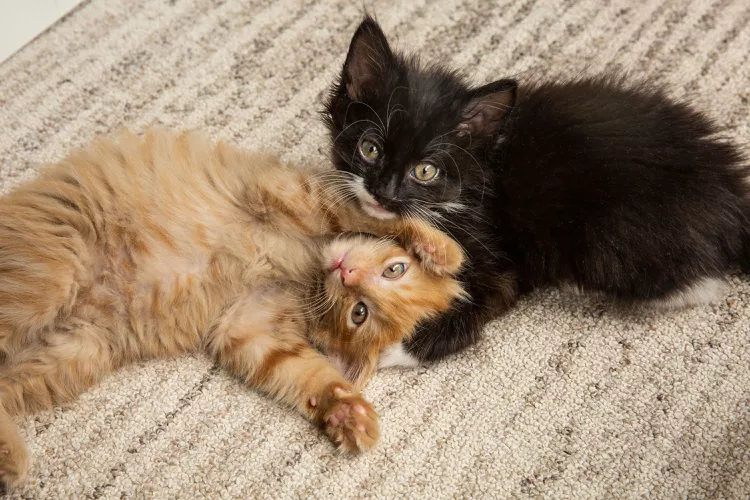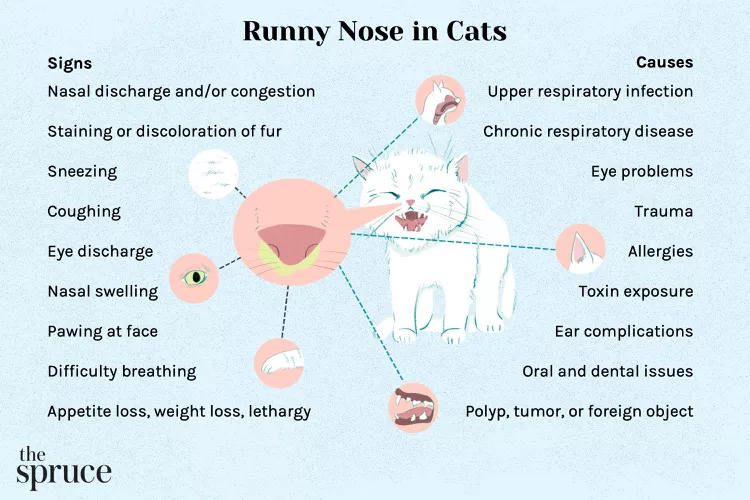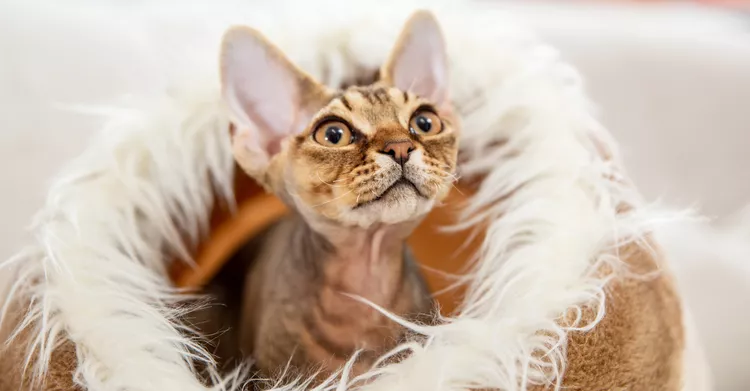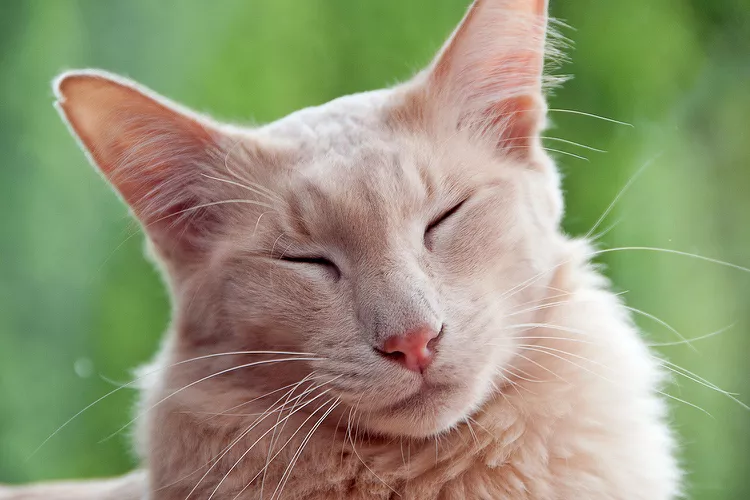
As you probably already know, cats make a variety of noises. Some breeds, such as Siamese cats, are known to be naturally noisy, but any cat can meow loudly for a number of reasons.
Although you may find excessively loud meowing to be annoying, it may also be an indication that your cat isn't feeling well.
Pay attention to your cat and what else is happening while it's crying. If you can figure out the reason for your kitty's loud meowing, you might just be able to stop it.
Aside from body language, meows are a cat's primary mode of communication. A meow can come in many forms and for many different reasons. Most healthy cats are usually attempting to communicate something when they meow. For instance, your cat may be trying to tell you that it's hungry, stressed out, scared, excited, or that it simply wants some of your time and attention.
Meows may also sound slightly different from one another based on the reasons behind them:
Some cats are born deaf, whereas others may become deaf over time. A deaf cat may not even realize it's making a sound when it meows. This makes it very difficult to interpret what the cat is trying to tell you through its vocalizations.
A deaf cat's meows are often much louder than those of a non-deaf cat as well because it doesn't know it's deaf and can't control the volume of its voice. This might be really obvious when your deaf cat can’t see you and is trying to find you.
Similar to people who have Alzheimer’s disease, your pets can develop cognitive dysfunction as they get older. As a disease process, it's not completely understood. But it may cause your cat to appear confused and to vocalize more than it used to. Some cognitively dysfunctional cats also stare while meowing loudly, especially at night.
If you think you may have pinpointed the reason for your cat's loud meowing, then you may be able to stop it by making a few changes to its routine and environment.

Why Two Kittens Are Better Than One
There are benefits of adopting two kittens, such as more feasible training and companionship between them.
Everything You Need to Know About Raising Your First Cat
Whether you are thinking about getting a cat or just adopted your first one, these are the things to know to make your relationship a lasting one.
How Can I Tell the Sex of a Cat?
Telling male and female cats apart can be difficult for those who don't know what they're looking for. Here are helpful tips to discover their sex.
Runny Nose in Cats: Causes and Treatment
Cats get runny noses due to upper respiratory issues, but many conditions can cause this. Learn the causes of runny noses in cats and the associated signs. Find out how vets diagnose and treat cats with runny noses.
How Long Can You Safely Leave Canned Cat Food Out?
You cannot safely leave canned cat food out all day. Twenty to 30 minutes is the max, so give smaller portions and reheat food for later feedings.
Meat Byproducts in Cat Food
Most cat experts recommend premium brands of cat food that avoid ingredients like byproducts and chicken meal. Learn what to look for on the label.
How Much Wet Food to Feed a Cat Every Day
The amount of wet food your cat needs depends on factors such as age, weight, body condition, and lifestyle. Learn how much wet food to feed your cat.
Taurine for Cats
Taurine is an essential animal protein in your cat's diet. Learn more about the various ways it supports your feline's body.
The Different Types of Pet-Friendly Workplaces
Discover the different types of pet-friendly workplaces and the benefits they offer employees. Learn how to create a pet-friendly workplace and the best practices for pet owners.
8 Halloween Safety Tips for Pets
The spooky holiday can be overstimulating and even dangerous for pets. Here's how to avoid the problems caused by toxic candy and incessant doorbells.
Why You Should Keep Cooked Bones Away From Your Dog This Holiday Season
People should be aware of the dangers of cooked bones, especially around the holidays when they might be more accessible to your pup.
Can Dogs Eat Squash? Here's What a A Vet Thinks
Dogs can safely eat squash as long as it's prepared correctly. Find out how to properly feed this versatile fruit to your dog.
16 Small Cat Breeds That Are Petite Purring Machines
Small cat breeds like the Singapura and munchkin may be smaller than an average housecat, but they leave a giant imprint on your heart.
10 Best Cats With Big Ears
Cats with big ears often look extra endearing. Check out some common big-eared cats, including the Abyssinian, Devon Rex, Siamese, Sphynx, and more.
Javanese (Colorpoint Longhair): Cat Breed Profile, Characteristics & Care
The Javanese is a semi-longhaired, color-pointed cat of Siamese type. They are related to the Siamese, Colorpoint Shorthair, and Balinese breeds.
How to Stop Aggression in Dogs
Dog aggression can be a serious behavior issue for pet owners. Learn how to stop aggression in dogs before someone gets hurt.
Should Dogs Be Allowed on Furniture?
Should you let your dog on the couch or in the bed with you? Are there any reasons we should not let dogs on the furniture? Here's what to know.
Why Do Dogs Eat Rocks?
One of the most common non-food items for dogs to eat are rocks. Here's what to know about why dogs eat them and how can you stop your dog from eating rocks.
Why Dogs Get Aggressive and How to Stop It
Why is your dog biting you aggressively? Sometimes dogs can become aggressive with little warning. Find out what causes your dog to become aggressive so you can work with the behavior.
Thai Ridgeback: Dog Breed Characteristics & Care
Learn all about the Thai Ridgeback, a rare breed from Thailand. Find out how to care for the loyal dog and where to buy or adopt one.